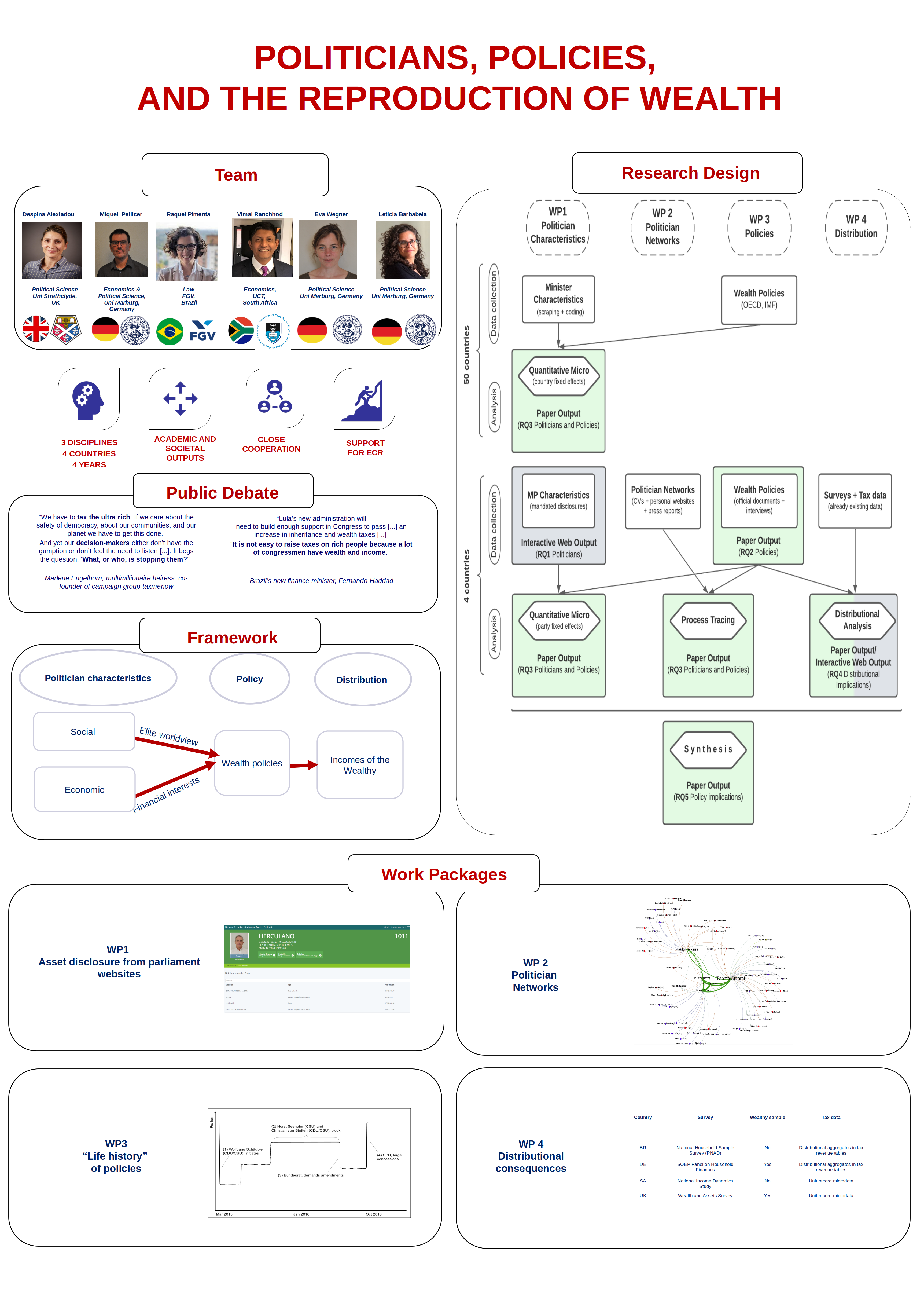Funder: VW foundation
Duration: 4 years
Marburg University team: Miquel Pellicer, Eva Wegner, Leticia Barbabela, and Lukas Rädle
Other PIs: Despina Alexiadou (Strathclyde University, UK), Raquel Pimenta (Fundação Getulio Vargas, Brazil), and Vimal Ranchhod (University of Cape Town, South Africa)
*****************************
Top income literature has established that public policies are crucial for the incomes of the wealthy. Recent political inequality literature suggests policies are biased towards the preferences of better-off citizens. We study the role of politician characteristics for developing policies that may systematically favor the wealthy. Our key questions are: How well do politicians’ social and economic characteristics align with those of economic elites? How does this affect policy making? What are the consequences for the incomes of the wealthy? Answering these questions will bring crucial insights into the political mechanisms behind the reproduction of wealth. It will also provide tools and solid empirical evidence for the public to either hold politicians accountable or increase citizen trust in them if warranted by the evidence.
We follow two broad empirical approaches. First, for 50 democracies, we collect and analyze data on economic and finance minister characteristics and wealth-relevant policies between 2005-2020. Second, we undertake in-depth case studies for four countries (the UK, Germany, Brazil, and South Africa) in the same period. In these case studies we 1. collect systematic data on MPs’ social and economic characteristics, 2. study in-depth the characteristics of particularly relevant politicians, 3. track the trajectories of policies from their inception to their adoption, recording the role and policy positions of individual politicians, and 4. analyze the implications of these policies for top incomes. We use a combination of quantitative and qualitative approaches which allows us to track the whole mechanism from politician characteristics to the proposed and adopted policies and thereby to the incomes of the wealthy.
Our project generates academic outputs, such as papers in academic journals, and policy papers for policymakers and civil society organizations. For the public we will moreover process our data to generate webpages with interactive material on politicians’ characteristics and policy trajectories.

We are an interdisciplinary team from political science, law, and economics located in the UK, Germany, Brazil, and South Africa with expertise in political inequality, conflicts of interests and distributional analyses.

